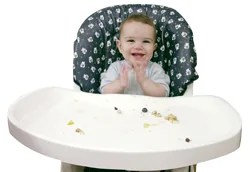Parents often use words like “TERRIFIC”, “GREAT”, “YOU’RE THE BEST”, or THAT’S WONDERFUL” in reaction to their child’s academic, artistic, creative, or athletic performances. While these superlatives are heartfelt, they can become overused and convey very little meaning to a child who is looking for more constructive comments in order to improve his or her performance. This can be especially true when children judge their work as mediocre and regard a parent’s high praise as superficial or insincere.

A child who consistently hears that he or she is wonderful, terrific . . . or the best athlete, student, artist, writer, dancer . . . may find it difficult to achieve skill or personal growth in a particular area. If the same words are used with other siblings, they may have even less meaning.
A case in point: As a personal life coach for young people ages 5-21, I recently worked with an 11-year-old client, Sarah. One of her personal goals was to improve her writing — an academic strength area as well as a passion. She had written a four-page story and left it on the dining room table for her mom to critique. Her piece centered on two main characters having a conversation about a mutual friend. Their compassion for others was to become apparent as they spoke with each other. When Sarah’s mom offered feedback she told her daughter, “That story you wrote was great; you are just the best in everything you do!” Sarah asked her mom how she thought the conversation between the two characters went. Her mom replied, “Oh, that part was terrific! I could tell they were having fun.” Sarah was disappointed, especially when she overheard her mother use the same complimentary words with a younger sister (a much poorer writer, in Sarah’s opinion!), about a story the sister had written.
“My mom’s comments meant nothing,” Sarah told me. “I don’t think she even read my story. How will I ever know when a story is really good or how to improve if she says the same thing every time? Why can’t she tell me the truth so that I can be better in what I love to do?”
While Sarah’s mother did not communicate in a way that added value to her daughter’s search for improvement, Sarah had not told her mother the purpose of the assignment and what she needed in a critique.
This same type of communication gap often exists in the area of athletics. Depending on the age of the child and the current level of competition, hearing the words “great, terrific…” consistently during the growing years may come back to deflate the child’s self-esteem if the child is later cut from a travel or school team.
Colin, a 9-year-old sports fanatic, who especially loved basketball, was told from the age of 4 that he was “terrific” at any sport he tried. He was also a bit bigger than his same age peers and was able to dominate in both skill and physical prowess over other teammates. He won easily and was awarded the trophies and accolades from coaches and parents who supported his “terrificness”.
However, when Colin turned 10, he entered into the travel team arena where competition included 10- to 12-year-olds who were even bigger and more experienced. He had become a “terrific” little fish in a “great” ocean.
At team tryouts, those words of “terrific, best, great …” did not coincide with how he felt. They had no real meaning in applying specific positive thinking and behavior under new circumstances. Colin did not make the travel team and could only play on the town recreation team.
“Colin was so lost out there the day of tryouts,” his mother reported. “I just knew that whatever encouragement I had been giving him just wasn’t working anymore. When he didn’t make the team, I was at a loss for words.”
Both Colin and Sarah would have benefited from meaningful and purposeful communication and from having practiced and internalized the strategies of optimism. There are steps which parent and child can take together so that the words that matter can be expressed.
STEP 1 — REFLECT
Think about how you critique your child.
—Do you sit down and give eye contact?
—Does your child have a chance to respond?
—Do you write down your comments?
Without understanding what you do now, you cannot move forward in communicating with your child.
STEP 2 — RELATIONSHIP
Determine how you and your child relate to each other.
—Managerial: You are the parent, therefore you know what’s best for the child
—Friendly: A mutual give and take; honest; open
—Adversarial: oil and water
—Role Mode/Idol: child believes parent is the ultimate being
It is crucial to know your view and your child’s view of the relationship as your words will echo the tone of your feelings.
STEP 3 — CRITIQUE TECHNIQUES
Purpose — Before you read a composition or attend a performance by your child, mutually establish particular areas to critique (e.g. how the child used metaphor, or how the child played defense).
Describe Behaviors — Specifically address what your child demonstrated in the performance (e.g. “Your description of the sunrise being a burning yoke ascending into the sky was so vivid in the second paragraph,” or, “Your defense in the first half held the center to 2 points.”)
Question Back — Get feedback from your child with his/her own recognition of demonstrated behaviors (e.g. “Using metaphor is a challenge for me — I am glad you saw the colors of the sunrise, I want to use more of that in my writing.” or “Well, I played the center really tight because I knew he could score if I didn’t.”)
Feedback — List the comments from both you and your child in an ongoing journal, or on the game schedule posted on the refrigerator. (Have the information accessible to both of you).
Rewind Your Mind — Before the next composition or event, reflect back or re-read previous comments given to your child to avoid using the same words.
STEP 4 — PRACTICE
Improved communication on critiquing your child’s performance requires patience, practice, and being present.
If time is limited to comment, hold off until quality time is available for both of you.

SUSAN T. DINNOCENTI has a Ph.D. in Talent Development and Educational Psychology, and is a Personal Life Coach for kids and parents in Westchester and Fairfield counties. For info on her ‘Using Words That Matter’ workshops, email susan@enrichyourchild.com, call her on (203) 536- 5496, or visit www.enrichyourchild.com.



















